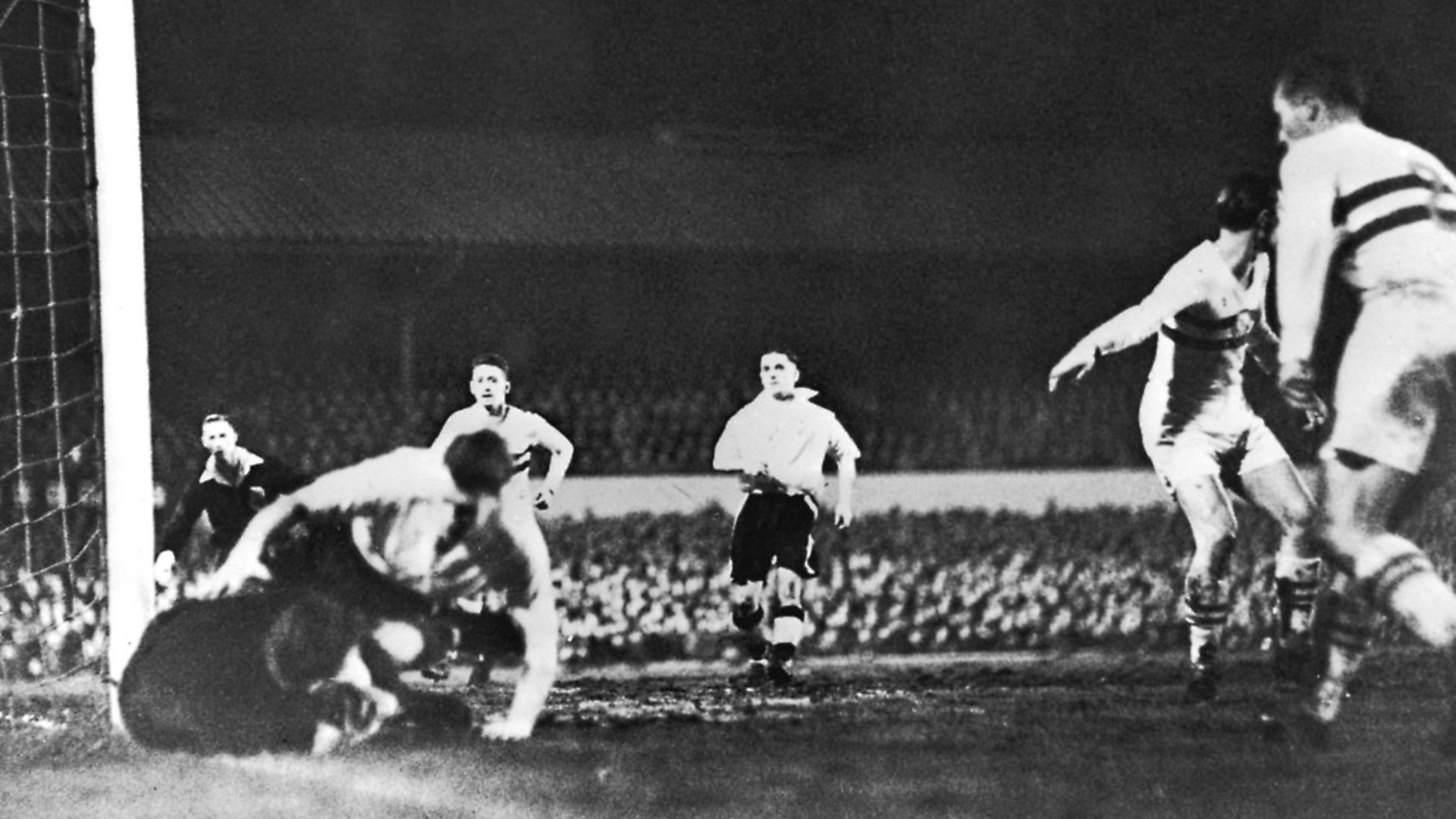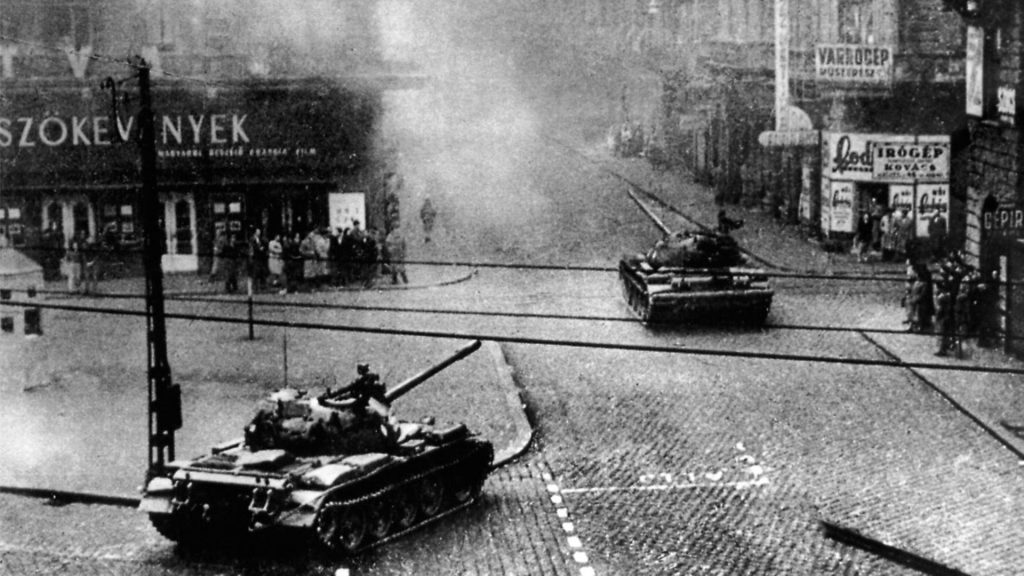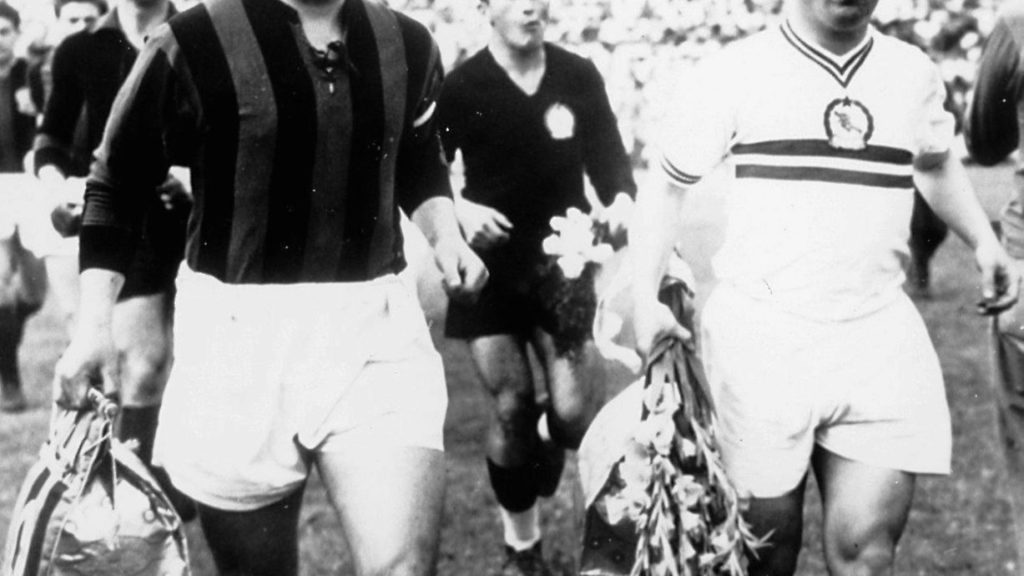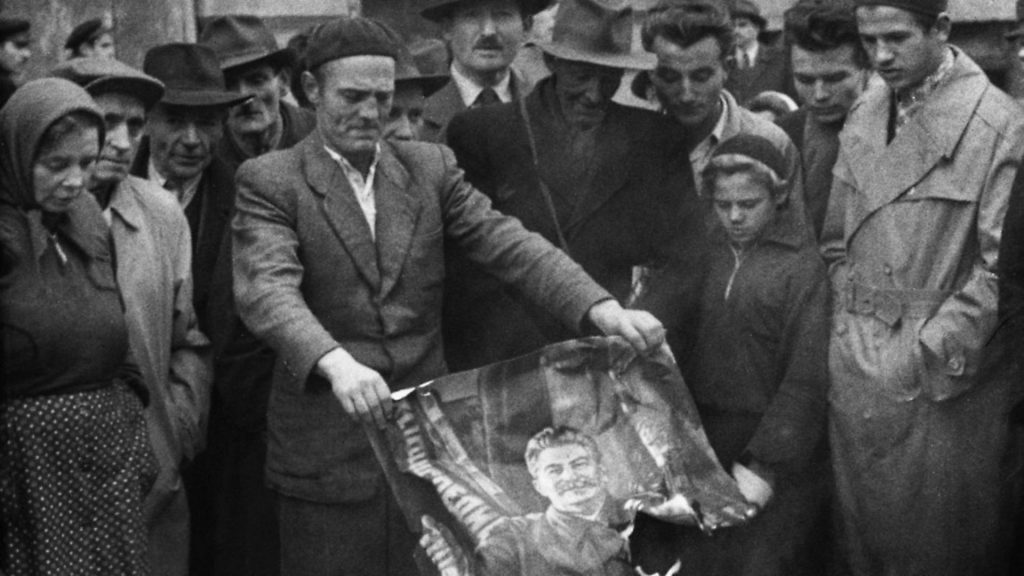
Budapest side Honved produced one of the greatest sides in the world. But all that was destroyed by the Hungarian Uprising of 1956 and they are still struggling under the weight of history.

The coming season’s Champions League group stages may yet feature the debut of Hapoel Be’er Sheva. Hailing from the Israeli city of Beersheba in the Negev desert, the Camels, as they are known, are through to the final qualifying round before the big time.
They would certainly be a colourful addition to the tournament. But their qualifying campaign – fought amid the minnows of European football – has already halted the romantic return to top level competition of a genuine former giant of the game, albeit one still suffering from the wounds left on it more than 60 years ago. Hapoel’s defeat, earlier this month, of Honved (5-3 on aggregate) ended the Hungarians’ first appearance in the tournament since they were knocked out by Manchester United in 1993. But for Honved, their golden era was generations earlier – indeed around the time that Matt Busby’s Manchester United side was enjoying its first glory days.
And just as that side was shattered by the Munich Air Disaster in 1958, so Honved was torn apart by a shocking event outside its control: the Hungarian Uprising of 1956.
The Hungarian league that year was abandoned as a result of the revolt but in the preceding seven years Honved had won the title five times. It had introduced Ferenc Puskas to the world and contributed seven of the ‘Mighty Magyars’ whose Hungarian team conquered England at Wembley in 1953’s ‘Match of the Century’ – luminaries like Sándor Kocsis, József Bozsik, Zoltán Czibor and Gyula Grosics.

Its sudden dominance of domestic football, starting in the late 1940s, was no chance occurrence. The club is from Kispest and was originally formed in 1908, as Kispest Atletikai Club. The area (where Puskas grew up) is south east of Budapest and has now been swallowed up by the capital’s urban sprawl. Back then, though, it was a distinct, if small, community. In those early decades, the club was a small one, its only trophy following a Hungarian Cup victory in 1926.
Success came swiftly, at the same time as the new ‘Honved’ name, once Hungary became a communist state in 1949 (and when Kispest was officially absorbed into a district of Budapest). The new name is derived from the Hungarian word Honvedsag – ‘soldier’ – and the team became the army club. The change was part of a wider policy – seen elsewhere in the Eastern Bloc – which saw sport nationalised and certain clubs adopted by different branches of the state. (The secret police took over rival Budapest side MTK. Ferencváros, also from the capital, proved more problematic, as a result of its right wing, nationalist tradition.)
Honved’s new status enabled them to cherry-pick the best players employed by the military. Hence the arrival of Kocsis, Czibor and others from rival clubs. Puskas, who was known as the ‘Galloping Major’, admitted that although the club’s players were, officially, soldiers, they did very little army training.
There was, however, discipline on the pitch and it was married to stunning creativity. In the 1950s there were few more exciting sights than a Honved team in full flow and when they came to England in 1954, their games became the stuff of legend.

Such was their reputation that Wolverhampton Wanderers’ 3-2 win against them was billed as an unofficial contest to decide the world’s best club. The English media declared Wolves the ‘best club side in the world’, annoying some football folk so much that the European Cup was organised in 1955.
Honved declined to enter the first year, but did so the following year, in 1956. Its campaign, though, was to be thoroughly overshadowed by the momentous events unfolding in its homeland.
The team were drawn against Athletic Bilbao, with the first leg due to be played in Budapest on November 7. To prepare for the game, the Hungarians had embarked on a series of tour matches in Western Europe.
This left them out of the country when, after a period of simmering social unrest, the Hungarian Rising erupted in late October. The revolt, against the government and its Soviet-imposed policies, spread quickly and the regime collapsed. Imre Nagy – a moderate and a westerniser – took over as prime minister and for five days there was an interlude in the fighting. Then, at dawn on November 4, Russian tanks were sent rolling into Budapest. They destroyed the Hungarian army and captured Hungarian Radio – the last words broadcast were ‘Help! Help! Help!’. Hungarians resisted the Russians, with some of the first street clashes taking place in the area around Honved’s stadium. But Soviet dominance was resumed, with an estimated 4,000 Hungarians killed.
As events unfolded, the Honved players decided not to return home even though many had wives and children back home and were unaware of their whereabouts or safety. It was clear that the approaching European Cup tie could not take place in Budapest and it was switched to Bilbao, where a distracted Honved side perhaps unsurprisingly lost, going down 3-2 after a battling display – in a dramatic finale it appeared that Honved had equalised only for the goal to be disallowed by English referee John Husband.
Rather than return to the turmoil of Budapest, the players opted to prolonged their self-imposed exile. The second leg of the tie was organised to take place at Heysel, in Brussels, in December, and their makeshift tour continued. By now, many of their families had been able to rejoin them, having fled Hungary on foot. The tour saw them drawing 5-5 with a combined Madrid (Real and Athletico) team, lose 6-2 to another combination of rivals (Sevilla and Real Betis) and defeat Barcelona 4-3, a game which saw the Hungarians reunited with legendary compatriot Laszlo Kubala who had fled the country in 1949.
Further games followed in Italy and Portugal, before an eventful second leg against Bilbao in Belgium. Early in the game the Honved goalkeeper was injured and, with no substitutes permitted, winger Czibor had to go into goal. Despite drawing 3–3 they went out 6–5 on aggregate.
Still left in limbo by the events back home, Honved declined a Mexican offer of political asylum and an invitation to join their national league but did accept an offer to play in a tournament in Brazil with CR Flamengo and Botafogo. However, by now, under political pressure, FIFA had declared the team illegal and banned them from using the Honved name.
Finally, the renegades returned home – at least, most of them. Many – among them Puskas, Czibor and Kocsis – decided their futures lay elsewhere. Puskas, whose family had headed for the Austrian border, settled in Vienna before making a comeback with Real Madrid. Hungarian football was never the same again, and neither was Honved.
The side only escaped relegation in 1957 when the authorities decided to expand the division. It is true that another purple patch was to follow in the late 1970s through to the early 1990s, which saw them win eight titles. But there was little of the international prestige which had accompanied the earlier golden era.
Then, in 2003, which had changed their name to Kispest Honved, was relegated, and a year later tax problems sent them into liquidation. The current owner, George Hemingway, arrived soon after as the club reformed as Budapest Honved.
Their appearance in the early stages of the Champions League this summer followed their first domestic championship in 24 years last season. They won the title on the final day of the season in what was effectively the decider against Videoton, from the city of Székesfehérvár. A capacity crowd of more than 8,000 at Honved’s József Bozsik Stadion saw them edge home 1-0.
Success for such an evocative name in European football was welcomed even beyond the Hungarian border. As Hemingway says: ‘A lot of people have been hungry for success at this club.’
Unlike previous Honved sides, the current team’s domestic triumph has come without the benefit of the state sponsorship. Rather, it has followed a focus on the development of local talent. Hemingway says with some pride that the title-winning team had six home-grown players in its line-up.
‘Half of our budget goes towards the football academy, which means our first team wage bill is among the lowest in the league. Other clubs devote 75% of their income to their players’ wages. We cannot possibly do that because we are committed to nurturing youngsters,’ he says.
He thinks that, ultimately, such a strategy can help revive Honved and, more broadly, Hungarian football. ‘While the big five leagues across Europe, and others, are paying such large sums of money, it is an uphill task for Hungary, but I think in 10-15 years’ time, the investment that is being made in academies and stadiums will pay-off with good young players that can move Hungary up the rankings.’
Reviving the footballing fortunes of Hungary is a major obsession in the country, pre-occupying not only men like Honved’s Hemingway, but also the prime minister himself.
The autocratic Viktor Orban is a massive football fan with a Tolkeinesque belief in the country’s footballing heritage and the mythical power of the Magyars. In his home town of Felcsut (population 1,800), his pet project, the Puskas Akademia team, plays at a 3,800 seater stadium. Orban’s country house is just 20 feet from the stadium. ‘We will return among the great nations of football,’ he has promised, and has launched a strategy – ‘A decade of revival – 2010 to 2020’ – to achieve it. It involves the renovation or construction of 38 grounds and needless to say, there is discontent over just how much money is being allocated to football in a country that struggles to remember when it was last truly successful at the sport. More money is being spent on sport than education and in a recent survey 80% of people over the age of 18 felt that much less should be spent on football and that other sports deserve more cash.
Hungary is certainly a country with one of the most glorious of footballing pasts. But it is a glory which is long since buried and few people believe the dream of reviving it is anything more than fancy.
In a country with a complex history of blending football and politics, who knows how it can end? As for Honved – the biggest victims of that blending – there is always next year…
Neil Jensen is a freelance business and football writer. He writes on football business, culture and history as well as the financial technology industry. He is editor of www.gameofthepeople.com and CEO of creative agency Isherwood Editorial









